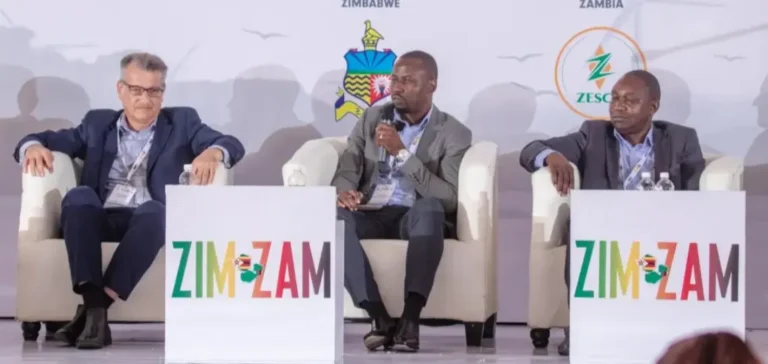The main public and private institutions from Southern Africa’s energy sector will gather in Livingstone, Zambia, for the ZimZam 2025 summit, scheduled from 26 to 28 November. The event aims to accelerate financial close for major energy projects by relying on partnerships between governments, investors and developers, amid growing demand and evolving regional production systems.
A platform for high-impact regional projects
Highlighted initiatives include the 100 MW Chisamba solar power plant, the Great Zimbabwe hydroelectric project and the Zambia–Tanzania Interconnector (ZTIP). These projects illustrate regional integration efforts while exposing challenges related to transmission infrastructure, project bankability and offtaker risk. Discussions will focus on concrete solutions to structure viable projects tailored to industrial and mining sector needs.
Copperbelt Energy Corporation (CEC), based in Kitwe, Zambia, will act as Country Host. The company recently raised $150mn through a green bond issuance to finance 230 MW in solar projects. This operation confirms CEC’s position as a central player in energy financing in Southern Africa.
Private sector participation and government engagement
More than 40 developers have confirmed their attendance, including Emesco, NOA Group, Axian Energy, Engie Energy Access, Voltalia, Globeleq, JCM Power and HDF Energy. Zambia’s Minister of Energy, Makozo Chikote, will also speak to present his government’s priorities for regional energy cooperation.
The summit will take place at the Radisson Blu Mosi-Oa-Tunya, Livingstone Resort, and will address regional interconnections, market structures, innovative financing mechanisms and the technological balance between solar, wind and hydro. The objective remains to transform political commitments into bankable projects while strengthening cross-border flows and supply security.
A turning point for regional energy infrastructure
ZimZam 2025 comes at a time when energy stability has become a key factor for industrial development. Discussions will also focus on the establishment of reliable markets, available financial guarantees and the role of the private sector in mitigating investment risks.
This edition of the summit positions itself as a strategic platform to advance large-scale energy projects in the region. Its format aims to align implementation conditions with market expectations, focusing on profitability, partner reliability and technical feasibility.






















